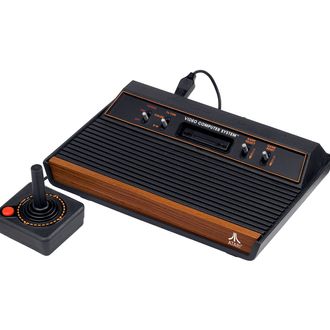
The U.S. arm of game-maker Atari — which, for gamers born in the nineties, was basically the Rockstar of its day — filed for Chapter 11 bankruptcy today.
The company — whose consoles played hits such as Pong, Asteroids, and, my personal favorite, Pitfall — is attempting to separate from its French parent company, which has been saddled with losses for the last decade. Atari has struggled many times before, most notably during the video-game crash of the mid-eighties. But, improbably, a version of the company survived a huge number of mergers, spinoffs, and management changes, and made it all the way to 2013, more than four decades after it was launched.
“The Chapter 11 process constitutes the most strategic option for Atari’s U.S. operations, as they look to preserve their inherent value and unlock revenue potential unrealized while under the control of Atari SA (ATA),” said the company, which will continue to operate in bankruptcy for now.
One of the most enjoyable parts of the Verge’s massive, excellent history of the video-game industry was the bit about how Atari founders Nolan Bushnell and Ted Dabney essentially ripped off Pong from a competitor’s game, gave it a single, simple rule — “avoid missing ball for high score” — and built an industry off its back:
Pong was released in the end of 1972 and it was so successful that Atari — which had just six employees — could not keep up with orders, and many companies rushed to copy it. Bushnell estimated that a Pong machine was generating around $40 a day in revenue — unheard of at the time — and it sold 4,000 units by the end of 1974. Home Pong, a dedicated home version, was released exclusively through Sears for the holiday of 1975, selling more than 150,000 units during the season.
Forty years after Pong’s release, video games are a $76 billion global industry and a $21 billion industry here in the U.S.— twice the size of the $10 billion domestic movie industry. Now video games are coming close to becoming our de facto cultural currency — our time spent playing them has more than doubled in the past decade, to an average of 142 hours a person per year.
Atari’s early innovation clearly helped create the video-game culture we have today, but in the ensuing decades, its dominance was compromised by poor management and a growing cadre of rivals, many of whom ripped off Atari’s hit games just as it had cloned Pong in its infancy. Atari sowed the seeds of the video-game revolution; it’s a shame it couldn’t reap more of the benefits.





























